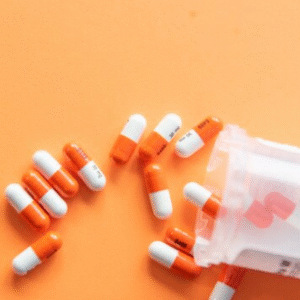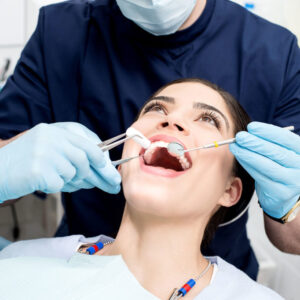Kidney stones are a painful condition affecting millions of people worldwide, often caused by dietary imbalances that lead to the accumulation of certain minerals and salts. If you or someone you know suffers from kidney stones, one of the most effective ways to prevent recurrence is by paying close attention to your diet. Understanding the kidney stone foods to avoid can make a significant difference in your kidney health.
In this comprehensive guide, we’ll explore the most common types of kidney stones, why certain foods contribute to their formation, and which foods you should steer clear of to minimize your risk.
Understanding Kidney Stones
Before diving into the dietary details, it’s essential to understand what kidney stones are. Kidney stones are hard deposits made of minerals and salts that form inside your kidneys. There are several types, including:
- Calcium Oxalate Stones: The most common type.
- Uric Acid Stones: Often linked to high protein intake.
- Struvite Stones: Usually caused by infections.
- Cystine Stones: Rare and usually genetic.
Each type can be influenced by your diet, making it crucial to know which foods increase your risk based on the type of stone you’re prone to forming.
Top Kidney Stone Foods to Avoid
Let’s take a look at the most notorious kidney stone foods to avoid. These foods either increase the concentration of stone-forming substances in the urine or affect the pH level of urine in a way that promotes stone development.
1. Oxalate-Rich Foods
Oxalates are natural substances found in many plant-based foods. While not harmful in themselves, they can bind with calcium in the urine to form calcium oxalate stones. High-oxalate foods include:
- Spinach
- Rhubarb
- Beets
- Swiss chard
- Almonds
- Cashews
- Sweet potatoes
- Dark chocolate
If you are prone to calcium oxalate stones, reducing your intake of these foods is key. However, it’s important not to eliminate calcium from your diet. Instead, balance calcium intake with oxalate-rich foods to minimize absorption.
2. Animal Protein
Diets high in animal protein can lead to increased levels of uric acid, which may contribute to both uric acid stones and calcium stones. Animal protein can also reduce urinary citrate, a chemical that helps prevent stones from forming.
Avoid or limit:
- Red meat
- Poultry
- Eggs
- Seafood
- Organ meats like liver
Opting for plant-based proteins such as legumes, lentils, and tofu can help reduce your risk.
3. High-Sodium Foods
Excess salt in your diet causes your kidneys to excrete more calcium into the urine. This can significantly increase the risk of forming stones, particularly calcium stones.
Foods high in sodium to avoid include:
- Processed snacks (chips, pretzels)
- Canned soups
- Fast food
- Frozen dinners
- Pickles and salty condiments
Aim to keep sodium intake below 2,300 mg per day. For those who’ve had kidney stones before, limiting it to 1,500 mg is even better.
4. Sugary Drinks and Sodas
Sugar, especially in the form of fructose, has been linked to a higher risk of kidney stones. Sodas, particularly those containing phosphoric acid (like cola), can disrupt the body’s mineral balance and contribute to stone formation.
Avoid:
- Cola drinks
- Sweetened teas
- Lemonades with added sugar
- Sports drinks with high sugar content
Instead, drink water, herbal teas, and citrus-infused water to stay hydrated without increasing your risk.
5. Vitamin C Supplements
While vitamin C is essential for health, high doses can increase oxalate production in the body. Men who consume more than 1,000 mg of vitamin C daily may be at higher risk for kidney stones.
If you take vitamin supplements, check the dosage and consider speaking to a healthcare provider about what’s safe for you.
6. Excessive Calcium Supplements
Although dietary calcium is beneficial, excessive calcium supplementation may increase the risk of stones in some individuals. Always aim to get calcium from food sources like dairy products, leafy greens (low in oxalates), and fortified foods unless advised otherwise by your doctor.
7. Caffeine in Excess
While moderate caffeine intake is generally fine, excessive consumption can lead to dehydration, which is a key risk factor for kidney stones. Dehydration reduces urine volume, making it easier for crystals to form.
Be mindful of your intake from:
- Coffee
- Energy drinks
- Black tea
- Soda
Hydration is crucial. Make water your primary beverage throughout the day.
Tips to Reduce Kidney Stone Risk
In addition to avoiding high-risk foods, there are practical steps you can take to protect your kidneys and maintain a balanced diet:
- Stay Hydrated: Drink at least 2.5–3 liters of water per day. This helps dilute the substances in urine that lead to stones.
- Limit Oxalates with Calcium: If you consume oxalate-rich foods, combine them with calcium-rich ones to bind oxalates in the gut instead of the kidneys.
- Eat More Citrate-Rich Foods: Citrus fruits like lemons and oranges can help prevent stones by increasing citrate in the urine.
- Moderate Protein Intake: Especially animal protein—opt for plant-based options when possible.
- Reduce Sugar and Sodium: Stick to whole, unprocessed foods and read nutrition labels carefully.
Customized Diet Based on Stone Type
Everyone is different, and so are kidney stones. If you’ve had a stone, ask your doctor to analyze its composition. From there, you can customize your diet accordingly:
- Calcium Oxalate Stones: Reduce oxalates, maintain moderate calcium intake.
- Uric Acid Stones: Cut down on animal protein and increase urine pH through diet.
- Struvite Stones: Often infection-related, focus on overall kidney health and hydration.
- Cystine Stones: Rare, but require high fluid intake and often medications.
Working with a dietitian who specializes in kidney health can be extremely helpful in crafting a personalized nutrition plan.
Final Thoughts
Avoiding certain foods can drastically reduce your chances of experiencing the pain and complications of kidney stones. Whether you’re looking to prevent them for the first time or stop a recurrence, knowledge is power. Understanding the kidney stone foods to avoid is the first step toward better kidney health.
Visit KidneyCop to learn more about kidney stone prevention, find expert dietary charts, and explore supplements that support a stone-free life.




